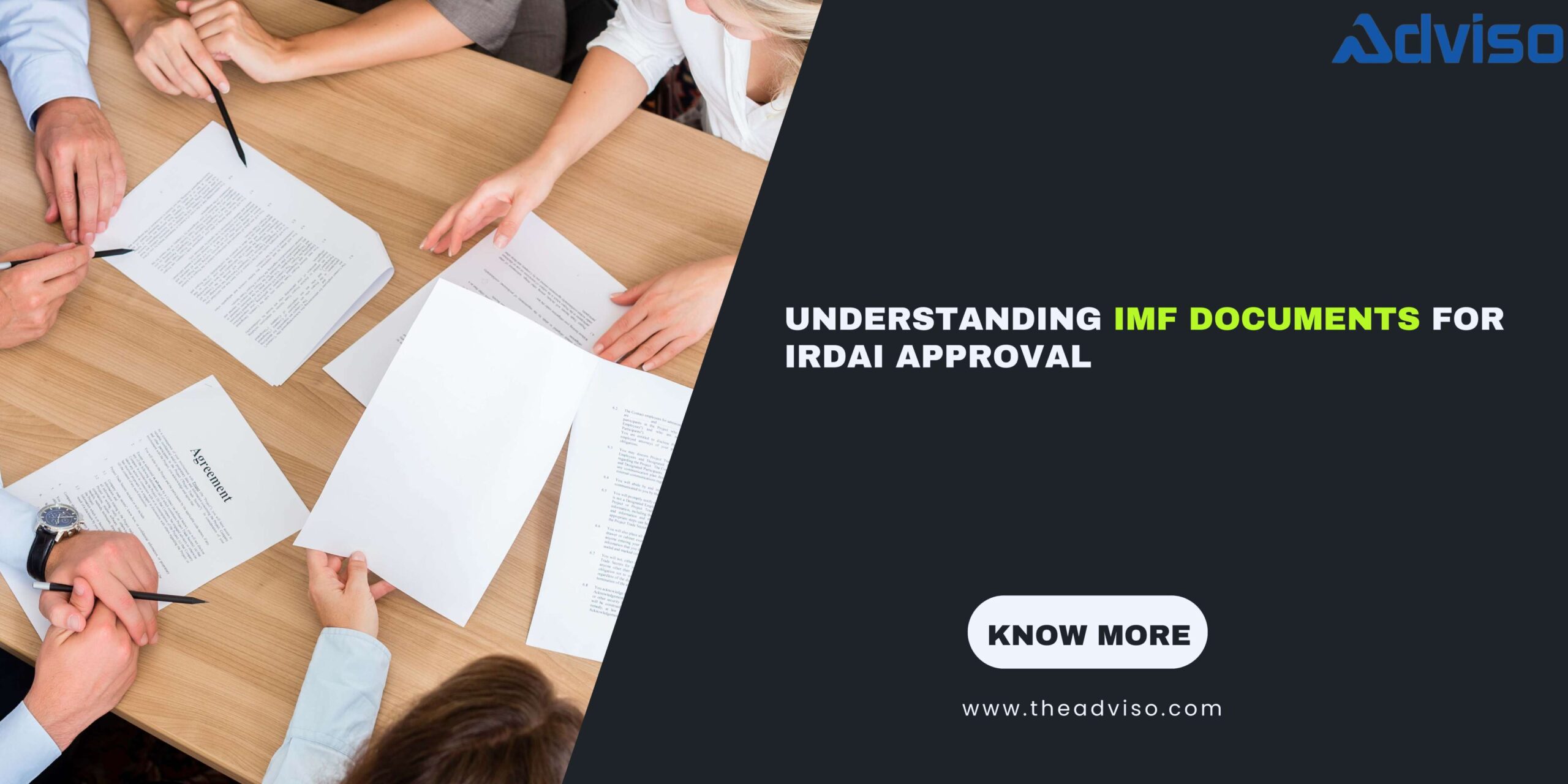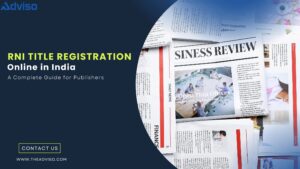IMF Documents – Insurance Marketing Firm
Insurance Marketing Firm (IMF) is a robust distribution channel that ensures financial inclusivity for people seeking flexible insurance products. IMF was conceptualized by IRDAI in 2015 to promote the reach of diverse insurance products, allowing individuals to have increased financial stability for a hassle-free life. IMFs bridge the gap between the insurers and the policyholders.
IMFs operate within the framework crafted by the Insurance Regulatory and Development Authority of India (Registration of Insurance Marketing Firm) Regulations, 2015. Legally, IMFs can only work with two life, two general, and two health insurance providers. The way IMFs operate or this arrangement is technically referred to as open architecture. The entity can serve the role of an IMF once it secures IRDAI’s approval. The process of legalizing an IMF starts with the application filing followed by the document submission. The article sheds light on the mandatory IMF Documents that play a key role in the registration process.
Check out our stories: Top 7 IRDAI License Services in India
Role and Scope of IMFs
Apart from promoting or procuring insurance products, IMFs can distribute products approved by different apex bodies, including RBI, SEBI, PFRDA, and the Department of Posts. IMFs serve as a major catalyst for India’s effort to boost financial inclusivity.
Noteworthy Features of IMF Operations:
- District-wise Registration: IMFs cannot operate in more than 3 districts within a state. That’s an operational mandate set by the IRDAI.
- Diverse Product Offerings: They can undertake promotion activities for products offered by the life insurance as well as general insurance companies.
- Collaborations: IMFs can collaborate with apex bodies like Agriculture Insurance Company of India Ltd. (AIC) and Export Credit Guarantee Corporation Ltd. (ECGC) to incentivize their offerings.
An Overview of IMF Registration And Role of IMF Documents
Obtaining the No Objection Certificate (NOC)
Before applying for IRDAI approval, the applicant must secure NOC from the competent authority. This document is your ticket to company incorporation with the Registrar of Companies (ROC). Once granted, the NOC stays valid for 6 months from the issuance date.
Application Procedure
Once securing ROC approval for incorporation, the applicant has one year to apply for IMF registration. Applying after this timeline does not make any sense since it will invite the authority’s rejection. While applying for IMF registration, the submission of the following becomes mandatory.
- Complete Form A: Fill in all relevant fields and upload the mandatory dossiers.
- Application Fee: Pay a non-refundable fee worth INR 5,000 from the IMF’s bank account.
- Declarations: Submit declarations constented by principal officers and directors, showcasing adherence to the“Fit & Proper” criteria.
- Examination Certificate: Share the principal officer’s qualification certificate, reinforcing his/her potential for the designation.
- Qualification Certificates: Submit proof evidencing the qualifications and experience of principal officers (POs) and Insurance Sales Personnel (ISP).
- Net Worth Certificate: Proof evidencing that the firm adheres to the net worth requirement.
- Business Plan: A three-year business plan showing protected undertakings and income.
- Infrastructure Details: Evidence showcasing the firm’s space, resources, etc to pursue proposed undertakings.
- Consent Letters: Submit at least one consent letter from an insurance company.
Understanding the Mandatory IMF Documents
IMF documents make a significant difference in how the registration would end up. Whereas fair and accurate IMF documents ease the assessment, unclear or misleading paperwork could lead to unexpected delays and even rejection. Below is the breakdown of documents that are paramount for IMF registration.
1. Form A and Application Fee
The registration process starts with submitting a prescribed application viz. Form A, which seeks the applicant to provide info on various aspects, including:
- Firm name and area of operation
- Registered place of business
- Infrastructure details
- Net worth and capital
- Manpower
Upon filling out the required details, pay an initial fee worth Rs 500 to get started with the registration process.
2. Principal Officer Declaration
The principal officer must abide by the IRDAI-formulated Fit & Proper Criteria, reinforcing that the individual has apt skills to pursue the duties of the concerned profile. This declaration serves as an affirmation the IRDAI norms have been net as far as the qualification for the designation is concerned.
3. Qualification and Examination Certificates
- Principal Officer: Certificates evidencing the experience as well as the qualification of the PO.
- Insurance Sales Personnel (ISP): Qualification certificates as well as proof concerning residency within the registration’s state.
These documents ensure that the proposed team is proficient in handling IMF’s operation.
4. Net Worth and Bank Account Statement
A Net Worth Certificate is a mandatory document that reflects the financial health of the firm. It is vital to certify such a document via a professional like a Chartered Accountant. Alongside the Net Worth Certificate, it is important to share the IMF’s bank statement as it affirms the fund’s availability to address operational needs.
5. Memorandum and Articles of Association (MoA/AoA)
For entities governed by the Companies Act 2013, the MoA and AoA serve as founding documents that reinforce various factors, including objectives and operational structure. Likewise, LLPs must share the LLP agreement.
6. Three-Year Business Plan
This document serves as a detailed blueprint showcasing the IMF’s projected activities, income, and operational strategies.
7. Infrastructure Details
Proof of office space, be it a rent agreement or ownership deed, along with pictures of the premises. These documents affirm that the firm has the required potential to pursue IMF operations.
8. Consent Letters from Insurance Companies
Consent letters from one insurance firm, illustrating teamwork and adherence to the open architecture model. These letters are paramount for evidencing the firm’s potential for undertaking IMF endevours.
9. Organizational Chart
This chart showcases the roles and responsibilities within the company, illustrating its internal structure as well as workflow.
Common Legal Questions About IMF Documents and Registration
1. What is the validity of the No Objection Certificate (NOC)?
The NOC is valid for six months from the date of issue.
2. Can an IMF operate without submitting a business plan?
No, a comprehensive business plan is among the most important
IMF documents, outlining the firm’s operational and financial strategy.
3. Are Net Worth Certificates mandatory for all IMF applicants?
Yes, the Net Worth Certificate are among the key IMF documents, evidencing the financial stability of the IMF.
4. How many insurance company tie-ups are allowed for an IMF?
IMFs can tie up with a maximum of two life, two general, and two health insurance companies, in addition to specific entities like AIC and ECGC.
5. Can an IMF operate in multiple states?
No, registration is district-wise, and IMFs are limited to a maximum of three districts within a single state.
6. Is the application fee refundable if the registration is denied?
No, the application fee of ₹5,000 is non-refundable.
7. What happens if the IMF fails to meet the “Fit & Proper” criteria?
Failure to meet the “Fit & Proper” criteria can result in the rejection of the application.
Conclusion
IMF registration requires a meticulous approach toward documentation and compliance fulfillment. Any potential issues with the IMF documents can perish the intention of securing the IRDAI approval. Therefore, it is paramount to double-check everything before you share it with the authorities. If you seek a hassle-free way of securing the registration, feel free to communicate with Adviso’s seasoned professionals. Being a premier agency, Adviso is a one-stop destination for license-seekers in India.
Also Read: A Comprehensive Guide to IRDAI IMF Registration




